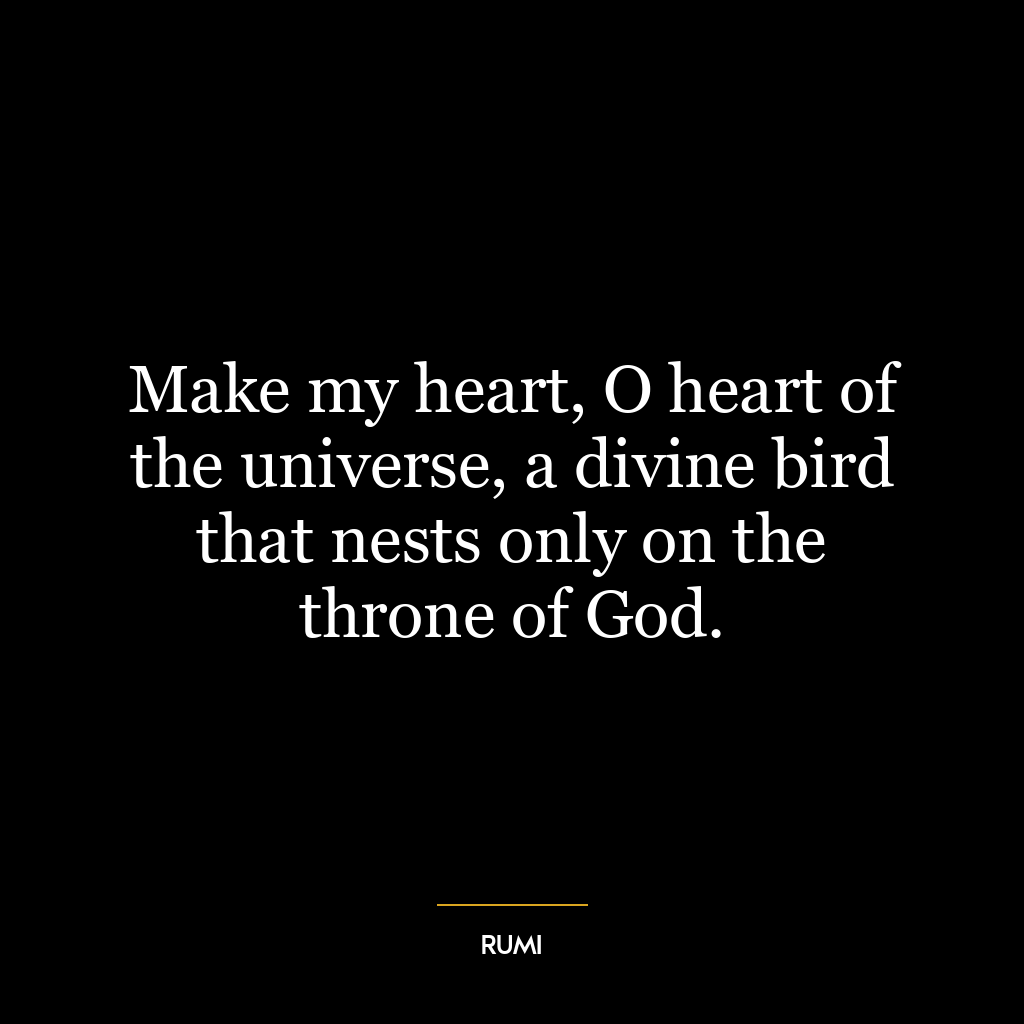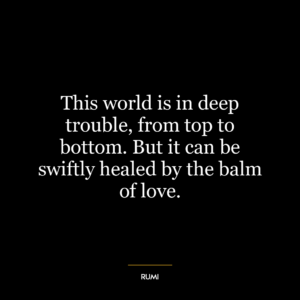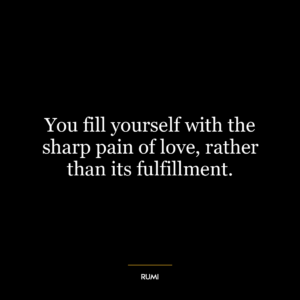Make my heart, O heart of the universe, a divine bird that nests only on the throne of God.
This quote is a profound expression of spiritual longing and aspiration. The heart referred to in the quote symbolizes an individual’s innermost being or soul. Rumi is expressing a desire for his soul to be transformed into a divine bird, which signifies freedom, transcendence, and closeness to the Divine.
The “throne of God” represents the highest state of spiritual realization or enlightenment where one experiences complete unity with the Divine. This metaphorical bird doesn’t wish to nest anywhere else but on this throne,indicating an intense yearning for continuous communion with God.
Applying this idea in today’s world or personal progress could mean seeking higher consciousness or spirituality as our ultimate goal. In practical terms, it might involve cultivating virtues like compassion, selflessness and love that bring us closer to realizing our divine nature.
It also suggests that we should not settle for lower forms of satisfaction – materialistic gains, power or fame – just as the bird doesn’t want any nesting place other than God’s throne. Rather we should aspire towards true fulfillment found in spiritual growth and connection with a higher reality.
In essence, Rumi encourages us to free ourselves from mundane attachments (symbolized by transforming into a bird), aim high (nesting on God’s throne), and remain focused on our spiritual journey despite distractions (the bird nests only there).
This metaphor can inspire individuals in their personal development journey by reminding them about what truly matters i.e., inner growth and enlightenment rather than external achievements. It provides a viewpoint shift from materialistic desires towards more fulfilling aspirations such as wisdom, compassion and peace – qualities associated with divinity.















